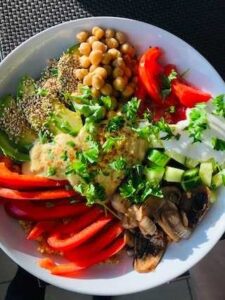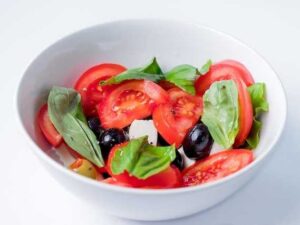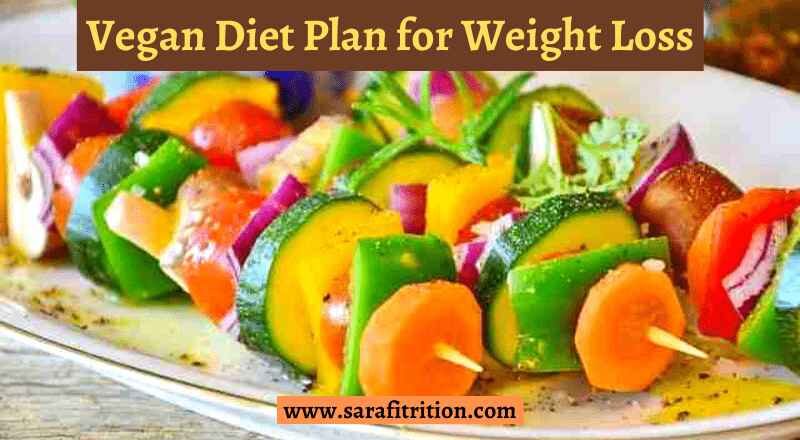Losing weight can be a challenge for anyone, but for those following a vegan diet, it can seem even more difficult. Eating a plant-based diet can be more expensive than a traditional diet, but with careful planning and budgeting, it can be done. In this article, we’ll provide a comprehensive vegan weight loss meal plan on a budget to help you reach your weight loss goals while following a vegan diet.
- Understanding Veganism and Weight Loss
- Planning a Vegan Plan for Weight Loss on a Budget
- The Vegan Diet Plan for Weight Loss
- How do vegans lose weight fast?
- What should Vegans eat to lose weight?
- Does a vegan diet reduce belly fat?
- How much weight can you lose on a 30 day vegan diet?
- Do vegans burn fat faster?
Understanding Veganism and Weight Loss

Veganism is a lifestyle choice where individuals avoid all animal products, including meat, dairy, eggs, and honey. People choose to follow a vegan diet for various reasons, including ethical, environmental, and health concerns. A well-planned vegan diet can provide all the nutrients the body needs and support weight loss. However, it is essential to choose nutrient-dense foods and avoid highly processed foods to ensure a healthy and balanced diet.
Planning a Vegan Plan for Weight Loss on a Budget
Planning a vegan weight loss meal plan on a budget requires careful consideration of both your dietary needs and budget constraints. Here are some tips to help you get started:
- Make a grocery list: Plan your meals for the week and create a grocery list based on the ingredients you’ll need. Stick to your list to avoid impulse purchases and overspending.
- Buy in bulk: Buying in bulk can save you money, especially on pantry staples like grains, beans, and nuts.
- Choose seasonal produce: Seasonal produce is usually less expensive and more flavorful than out-of-season options.
- Cook at home: Eating out can be expensive and often includes hidden sources of animal products. Cooking at home also gives you control over the ingredients and portion sizes in your meals.
- Use leftovers: Cook larger portions of meals and use the leftovers for lunch or another meal during the week.
The Vegan Diet Plan for Weight Loss

Here is a sample vegan weight loss meal plan for one week, including breakfast, lunch, dinner, and snacks:
Day 1 vegan diet
- Breakfast: Whole grain toast with avocado and cherry tomatoes
- Lunch: Chickpea salad with mixed greens, cherry tomatoes, and balsamic vinaigrette
- Dinner: Stir-fry with tofu, vegetables, and brown rice
- Snack: Apple slices with almond butter
Day 2 vegan diet
- Breakfast: Oatmeal with almond milk, berries, and chopped nuts
- Lunch: Veggie wrap with hummus, veggies, and sprouts
- Dinner: Lentil soup with whole grain bread
- Snack: Carrots and celery with hummus
Day 3 vegan diet
- Breakfast: Smoothie bowl with almond milk, spinach, banana, and protein powder
- Lunch: Quinoa salad with roasted vegetables and a lemon vinaigrette
- Dinner: Grilled portobello mushrooms with a side salad
- Snack: Roasted chickpeas
Day 4 vegan diet
- Breakfast: Peanut butter and banana on whole grain toast
- Lunch: Tomato and cucumber salad with balsamic vinaigrette
- Dinner: Spaghetti squash with marinara sauce and a side salad
- Snack: Rice crackers with nut butter
Day 5 vegan diet
- Breakfast: Chia seed pudding with almond milk, fruit, and nuts
- Lunch: Vegetable stir-fry with brown rice
- Dinner: Roasted sweet potato with black beans and salsa
- Snack: Frozen grapes
How do vegans lose weight fast?

Here are some tips for vegans who want to lose weight:
- Eat whole, unprocessed foods: Focus on eating whole, unprocessed foods like fruits, vegetables, whole grains, legumes, and nuts. These foods are high in fiber, vitamins, and minerals, and can help you feel full and satisfied, which can lead to weight loss.
- Limit high-calorie, high-fat foods: Be mindful of high-calorie, high-fat foods like oil, avocado, and nuts, as they can be calorie-dense and contribute to weight gain.
- Incorporate protein-rich foods: Eating enough protein is important for weight loss, as it can help you feel full and satisfied. Good sources of protein for vegans include tofu, tempeh, legumes, and nuts.
- Avoid sugary drinks and snacks: Try to limit sugary drinks like soda and juice, as well as high-calorie snacks like cookies, cakes, and candy.
- Practice portion control: Pay attention to portion sizes, as eating too much of even healthy foods can contribute to weight gain.
It’s also important to remember that weight loss is not just about what you eat, but also about how much you eat and how active you are. Incorporating regular physical activity into your routine can help boost weight loss and support overall health.
It’s difficult to estimate how much weight you can lose on a vegan diet in 30 days, as everyone’s body and weight loss journey is different. However, making healthy food choices and incorporating physical activity into your routine can help you achieve your weight loss goals. Additionally, reducing belly fat requires a combination of healthy eating, regular physical activity, and patience, as spot reduction is not possible.
What should Vegans eat to lose weight?
Here is a list of foods that can be included in a healthy, balanced vegan diet for weight loss:
- Fruits: Apples, berries, bananas, oranges, etc.
- Vegetables: Leafy greens, broccoli, carrots, bell peppers, etc.
- Whole grains: Brown rice, quinoa, whole wheat bread, etc.
- Legumes: Lentils, chickpeas, black beans, etc.
- Nuts and seeds: Almonds, chia seeds, flaxseeds, etc.
- Plant-based proteins: Tofu, tempeh, seitan, etc.
- Healthy fats: Avocado, olive oil, coconut oil, etc.
It’s important to focus on eating whole, unprocessed foods, and to limit high-calorie, high-fat foods like oil, avocado, and nuts. Additionally, paying attention to portion sizes and incorporating regular physical activity can help support weight loss.
Does a vegan diet reduce belly fat?
A vegan diet can help reduce belly fat, as long as it is balanced and includes whole, unprocessed foods. Eating a diet rich in fruits, vegetables, whole grains, legumes, and healthy fats can help promote weight loss and reduce belly fat. Additionally, limiting high-calorie, high-fat foods and practicing portion control can also support weight loss and reduce belly fat.
However, it’s important to remember that reducing belly fat requires a combination of healthy eating and regular physical activity. There is no single food or diet that can target belly fat specifically, as spot reduction is not possible. Therefore, a combination of a balanced diet and regular exercise is the most effective approach for reducing belly fat.
How much weight can you lose on a 30 day vegan diet?
It’s difficult to predict how much weight a person can lose on a 30-day vegan diet, as weight loss can vary depending on several factors such as starting weight, diet composition, and physical activity levels.

However, a well-planned vegan diet can support weight loss as long as it is balanced, includes whole, unprocessed foods, and limits high-calorie, high-fat foods. On average, people following a vegan diet tend to have a lower body mass index (BMI) compared to those following a non-vegetarian diet.
It’s also important to remember that sustainable weight loss is a gradual process and it’s not recommended to aim for rapid weight loss, as it can often be difficult to maintain in the long term. A weight loss of 1 to 2 pounds per week is a safe and achievable goal.
It’s always best to work with a healthcare provider or a registered dietitian to create a personalized plan that meets your individual needs and goals.
Do vegans burn fat faster?
There is no evidence to suggest that vegans burn fat faster than people who follow other diets. The speed of fat burning depends on several factors such as diet composition, caloric intake, and physical activity levels, and these factors can vary greatly between individuals.
However, a well-planned vegan diet that includes whole, unprocessed foods and limits high-calorie, high-fat foods can support weight loss and fat burning. Additionally, incorporating regular physical activity into your routine can also boost fat burning and support weight loss.
It’s important to remember that sustainable weight loss is a gradual process and it’s not recommended to aim for rapid weight loss, as it can often be difficult to maintain in the long term. A weight loss of 1 to 2 pounds per week is a safe and achievable goal.
As with any diet, it’s always best to work with a healthcare provider or a registered dietitian to create a personalized plan that meets your individual needs and goals.

